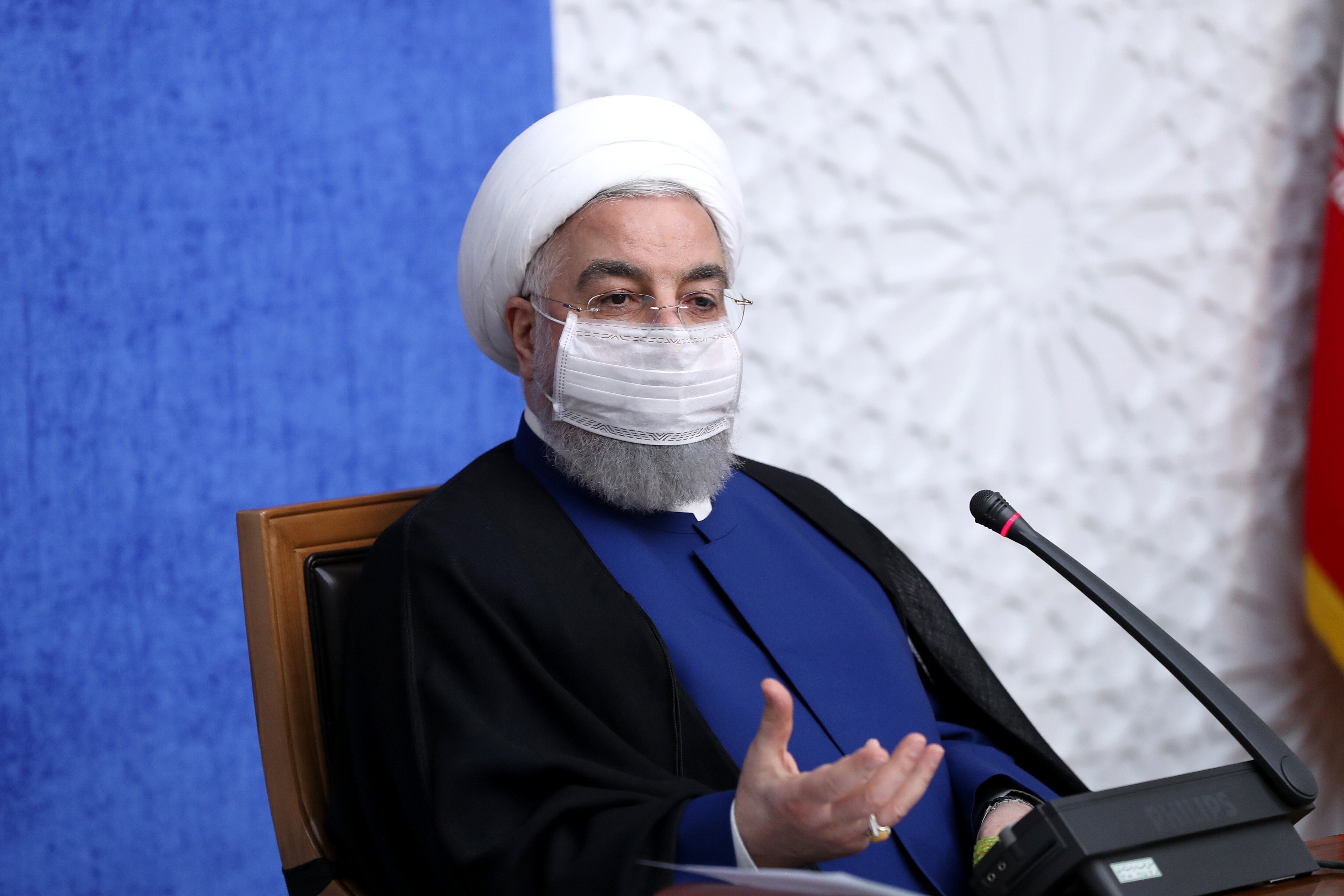
A view from Tehran's street as a citizen reading the news regarding the U.S. elections in newspapers in Tehran, Iran, on November 09, 2020. /Getty
A view from Tehran's street as a citizen reading the news regarding the U.S. elections in newspapers in Tehran, Iran, on November 09, 2020. /Getty
Editor's Note: Dr. Wang Jin is a research fellow of Charhar Institute in China and an associate Professor from Northwest University in China. The article reflects the author's opinion, and not necessarily the views of CGTN.
The Iran Nuclear Deal has a new important opportunity. U.S. State Department spokesperson Ned Price said that the U.S. would attend a meeting with Iran and other signatories of the 2015 Iran Nuclear Deal. The statement suggests that the U.S. is changing its stance that Iran's return to the Nuclear Deal should be the precondition of any talks between Washington and Tehran, and paves the way for new opportunities for the Deal to be reinstated after the Trump administration's withdrawal two years ago.
Before Price's statement, Washington and Tehran were in a stalemate and deadlock. After the Trump administration's withdrawal from the Nuclear Deal in 2018, and especially the killing of the commander of Iranian Islamic Revolutionary Guards Corps Qasem Soleimani in early 2020, Washington's and Tehran's positions have been in vast opposition.
Iran maintains that the U.S. withdrawal from the Nuclear Deal led to Iran's economic difficulties and crisis, and the U.S. should compensate Iran's losses before resuming talks. Meanwhile, Washington has argued that it was Tehran's gradual withdrawals from the Nuclear Deal after 2019 that finally led to the ineffectiveness of the Nuclear Deal, and Tehran should go back to it before talks with Washington.
Therefore, Price's statement that talks could be held between Washington and Tehran suggests an important concession made by the Biden administration in the hope of facilitating contact between Washington and Tehran.
However, obstacles remain.
First, the talks and direct contacts between Washington and Tehran might not be easy. Although Washington has expressed its willingness to contact Tehran, Iran still faces opposition at home. After years of sanctions and "maximum pressure" adopted by the Trump administration, the moderate government led by President Hassan Rouhani and Foreign Minister Javad Zarif faces challenges and oppositions from parliament dominated by hardliner and conservative groups.

President of Iran, Hassan Rouhani makes statements on the U.S. election results at the meeting of economic coordination headquarters in Tehran, Iran on November 08, 2020. /Getty
President of Iran, Hassan Rouhani makes statements on the U.S. election results at the meeting of economic coordination headquarters in Tehran, Iran on November 08, 2020. /Getty
For many Iranian hardliners and conservative politicians, sanctions imposed by the Trump administration shows that the U.S. still harbors the intention of overthrowing Iran regime, and many of them do not trust the U.S. Some even believe that Iran should produce nuclear bomb to deter U.S. threats. Given that Rouhani's presidential term will come to the end this year, both hardliners and conservatives hope to have their own President. For Rouhani and his team, they still need more patience and time to persuade Iranians about the needs to start talks with the U.S., although Rouhani has limited time left.
Second, talks between Washington and Tehran would face old problems. Although the U.S. has suggested that Tehran's return to and compliance to the Nuclear Deal would not be the precondition for talks between the two, there are gaps that remain difficult to bridge. Washington would not compensate Iran's losses because it was the Trump administration and not Biden that imposed sanctions against Iran in 2018, while Tehran would not fully comply with the Nuclear Deal until the U.S. compensates.
Who starts first is no longer a precondition for talks, but an obstacle for breakthrough.
Finally, the talks between Washington and Tehran would face strong opposition from Washington's Middle East allies. For Saudi Arabia, the UAE and Israel, the Iranian threat is pressing. The U.S. cannot make deals with Iran without approval from its Middle East allies. For Saudi Arabia, Israel and the UAE, Iran's threat not only comes from Tehran's nuclear capabilities, but also Tehran's missile programs and regional influence. The U.S. needs to consult with its allies in talks and contacts with Iran.
The talks between the U.S. and Iran is an important opportunity because without talks, nothing would happen. But the talks between Washington and Tehran would face varied oppositions, while efforts of all sides, not just Iran and the U.S., are needed to reach any breakthrough.
(If you want to contribute and have specific expertise, please contact us at opinions@cgtn.com.)

